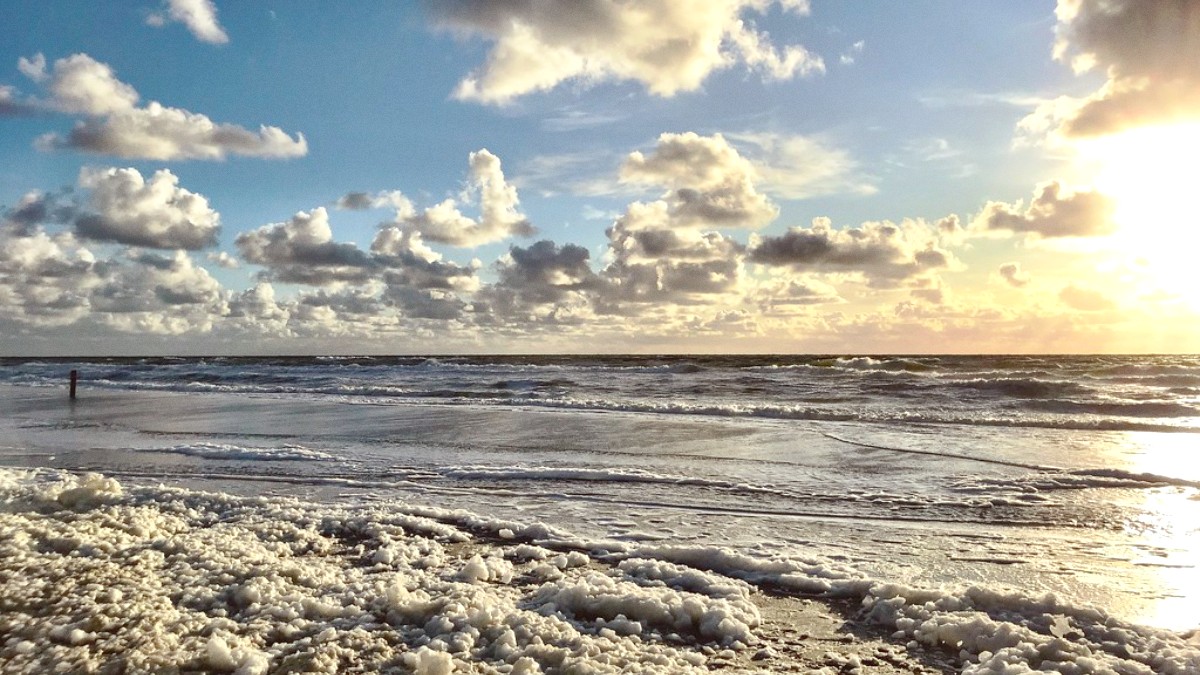
Frisian Islands, Netherlands
Texel is a core part of the Wadden Sea UNESCO World Heritage Site, recognized for its important intertidal ecosystem. Additionally, the National Park Duinen van Texel safeguards the island's extensive dune landscapes.
These designations include strict regulations that protect the unique flora, fauna, and geological features. Visitors explore responsibly, staying on marked paths to avoid disturbing sensitive habitats and wildlife.
Support Texel's sustainability efforts.
The Netherlands features a developed recycling infrastructure. On Texel, designated bins are available for separating different types of waste, typically plastic (PMD – plastic, metal, drink cartons), paper, glass, organic waste (GFT), and residual waste. Visitors separate their waste diligently and use the appropriate bins provided at accommodations and public areas. Avoiding littering, especially in natural areas like the beaches and dunes, is significant to protect wildlife and maintain the island's pristine appearance.
While the Netherlands does not face severe water scarcity, mindful water use is encouraged. Simple actions like taking shorter showers and turning off taps when not in use contribute to conserving resources, specifically on an island where resources are more finite.
When booking your stay, look for accommodations that hold environmental certifications (e.g., Green Key, EU Ecolabel) or demonstrate clear commitments to sustainability. Check Ecobnb for eco-friendly options.
Many Texel businesses are aware of their environmental impact and implement practices like energy efficiency, waste reduction, and sourcing local produce. Directly inquire about their sustainability efforts. For ethical outdoor gear, explore Patagonia. Support conservation at The Rainforest Site.
Pack out everything you pack in. Dispose of waste properly in designated bins. This aids in keeping Texel's beautiful landscapes pristine for all.
Engage with Texel's culture respectfully.
Preserving Texel's unique island culture and history by visiting local museums (like Museum Kaap Skil and Oudheidkamer), attending traditional events (if available during your visit), and appreciating local crafts.
Engage with locals politely and openly. A simple "Hallo" or "Dank u wel" in Dutch is appreciated. Be mindful of noise levels, especially in quiet villages and residential areas. Privacy is important, especially when passing private homes or farms.
Taking photographs in public spaces on Texel is generally acceptable. Ask for permission before photographing individuals, especially children, to respect their privacy. Be discreet and respectful when taking photos in religious sites or on private property. Some museums or specific exhibits might prohibit photography or flash photography; observe any signs.
Generally acceptable, but always be mindful of surroundings.
Always ask for permission before taking photos, especially of children.
Observe 'no photography' or 'no flash' signs in museums and private property. Maintain discretion in religious sites.
Be discreet and respectful when taking photos in religious sites or on private property. Always ask for permission before photographing individuals.
Your visit supports the local community and economy.
Choose to support locally owned accommodations (like B&Bs or independent hotels), restaurants, cafes, and shops.
When purchasing souvenirs or local products, look for items clearly marked as "Texels product" or those directly from local farms and artisans. This indicates genuine island origin and fair practices.
Prioritize spending your money at independent Texel businesses. This includes eating at local restaurants, buying groceries from local supermarkets or farm shops, renting bikes from island-based rental companies, and booking tours with local operators.
Texel is a stable and prosperous region. Exploitation issues related to tourism are not prevalent. Visitors enjoy their trip without concern for contributing to such problems.
If moved to donate to a cause, consider supporting local nature conservation organizations or charities directly involved in animal welfare or community development on the island. This ensures your contribution aids initiatives that directly benefit Texel's environment or its residents.
Support organizations like Natuurmonumenten or Staatsbosbeheer, which operate on Texel.
Consider charities involved in animal welfare, like Ecomare (seal rescue center).
Contribute to local community development initiatives on the island.
Direct your contributions to organizations that directly benefit Texel's environment or residents.
Leave no trace. Pack out everything you pack in. Dispose of waste properly in designated bins. This aids in keeping Texel's beautiful landscapes pristine for all.